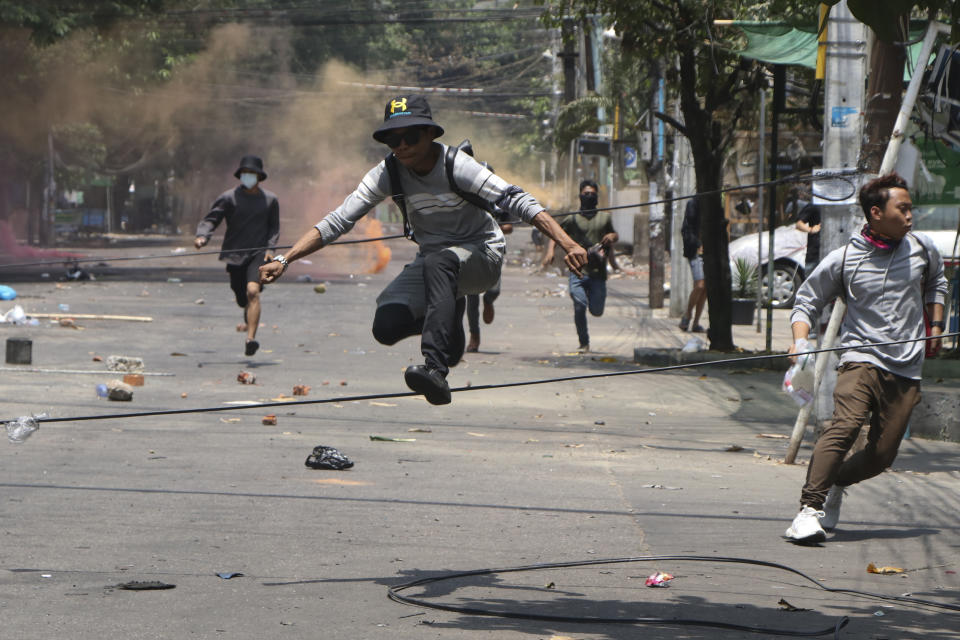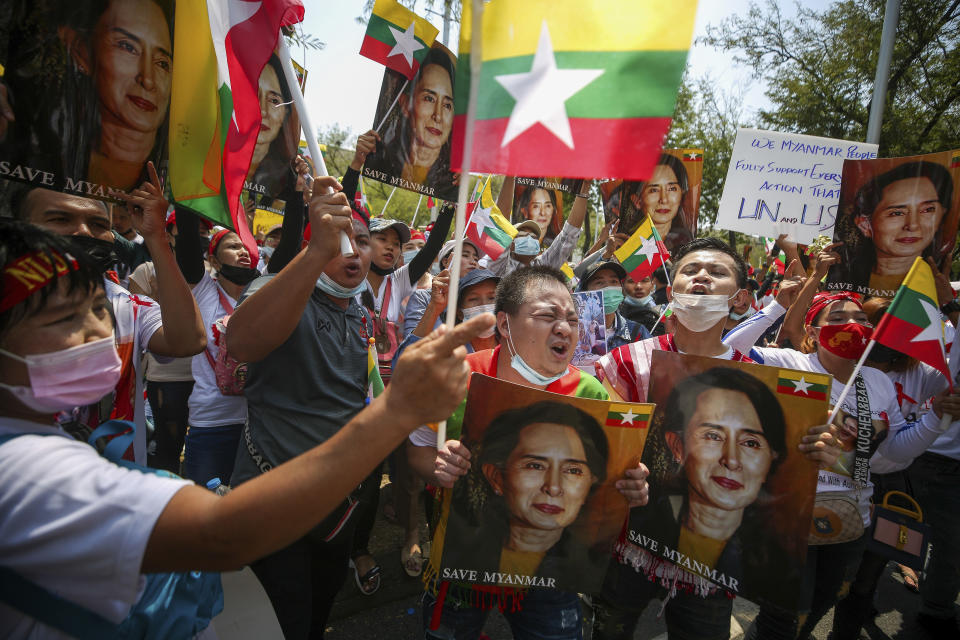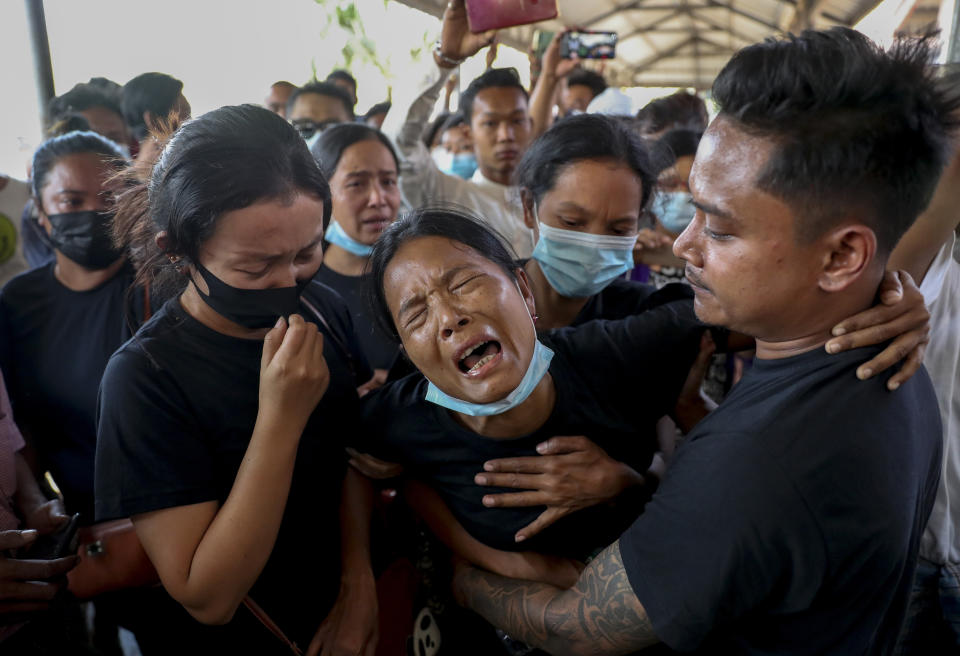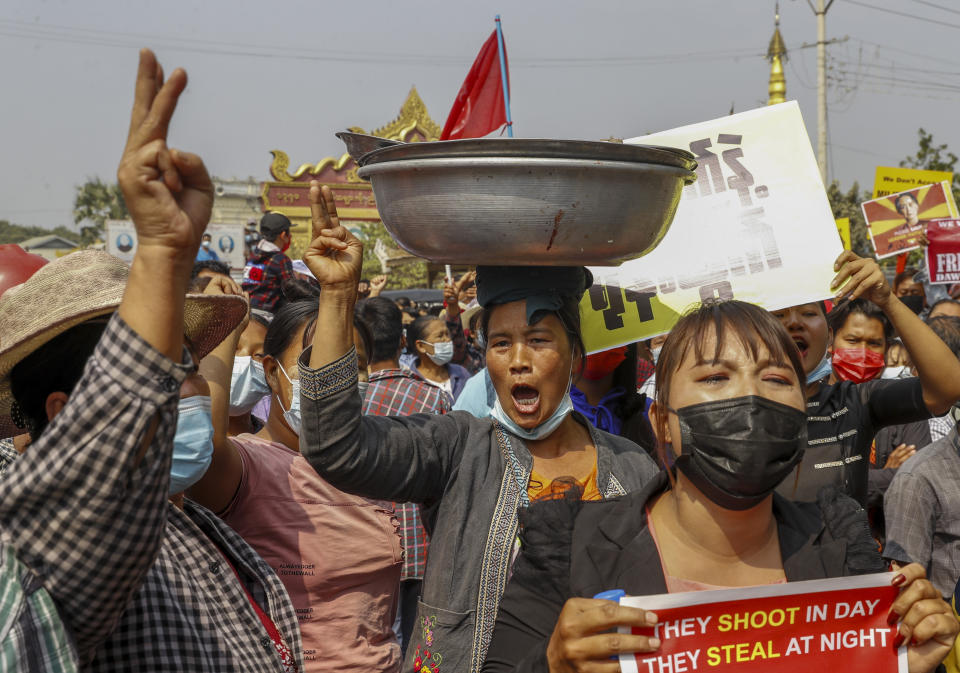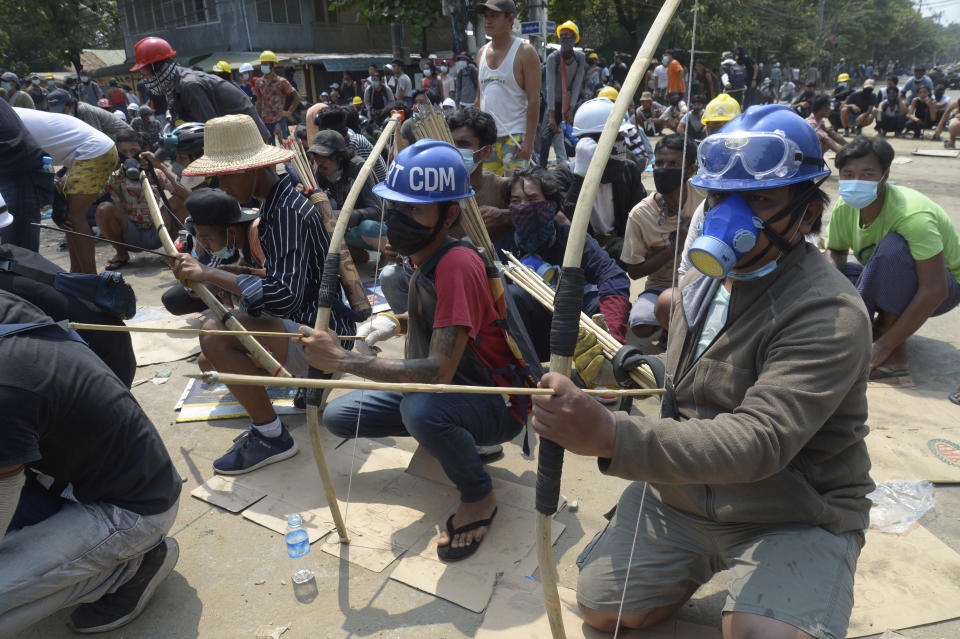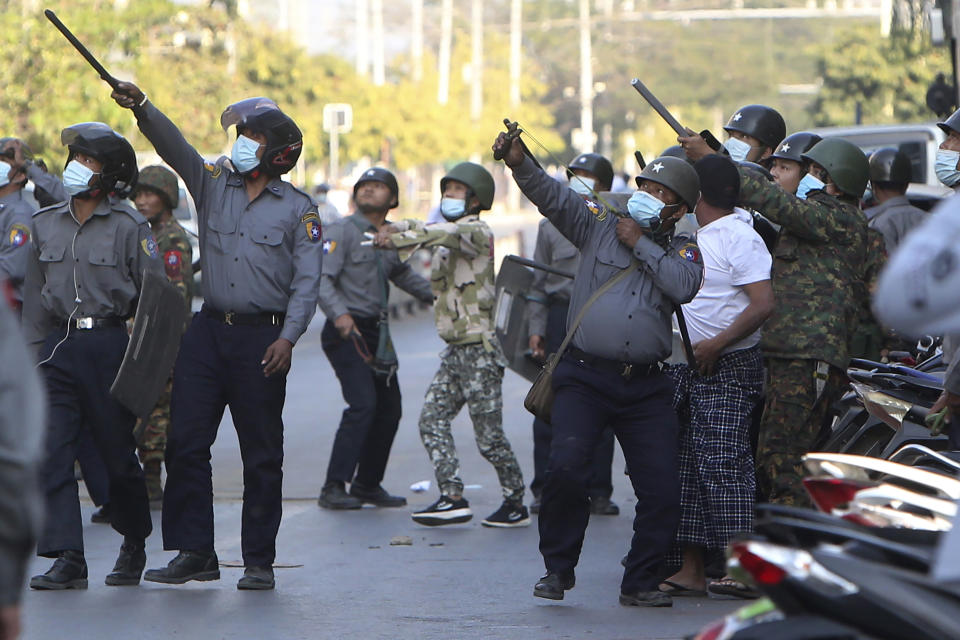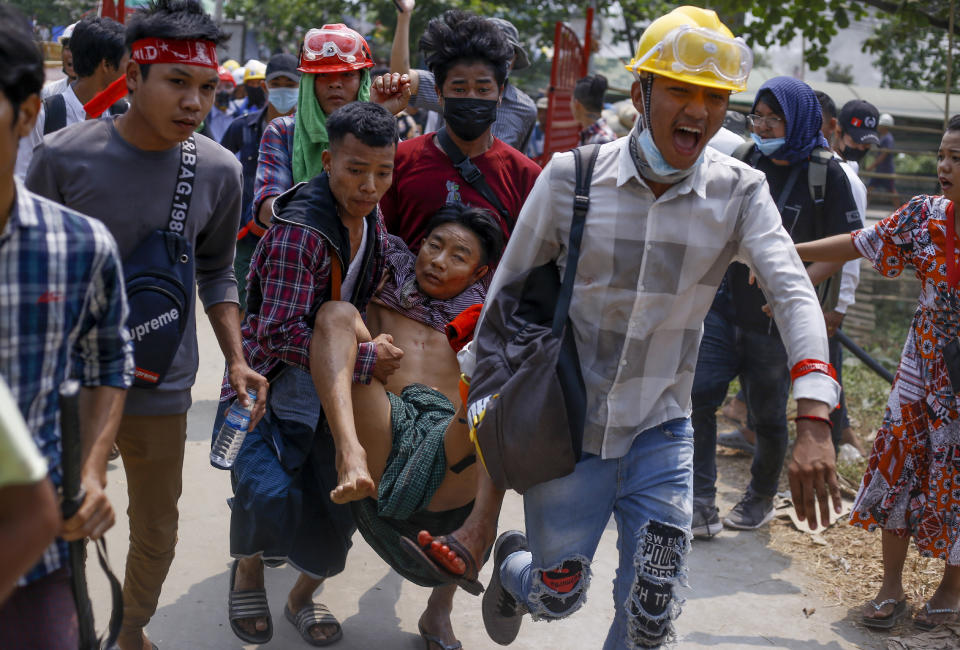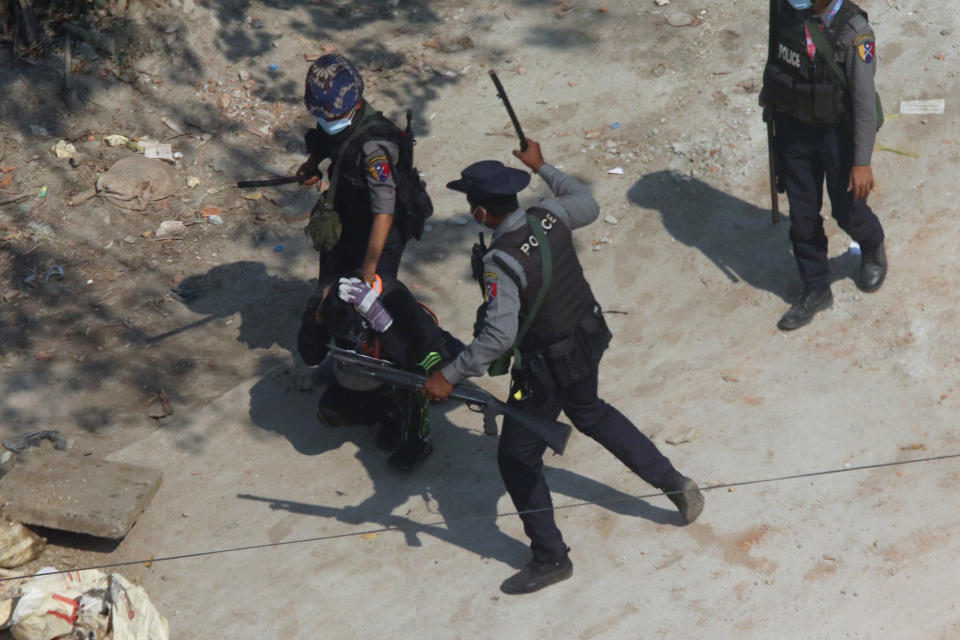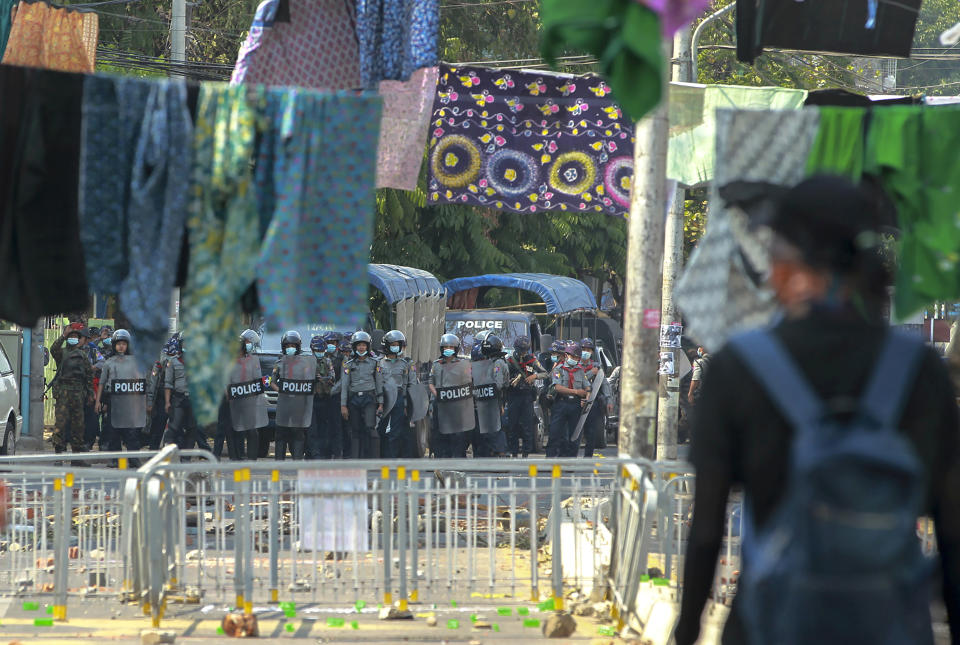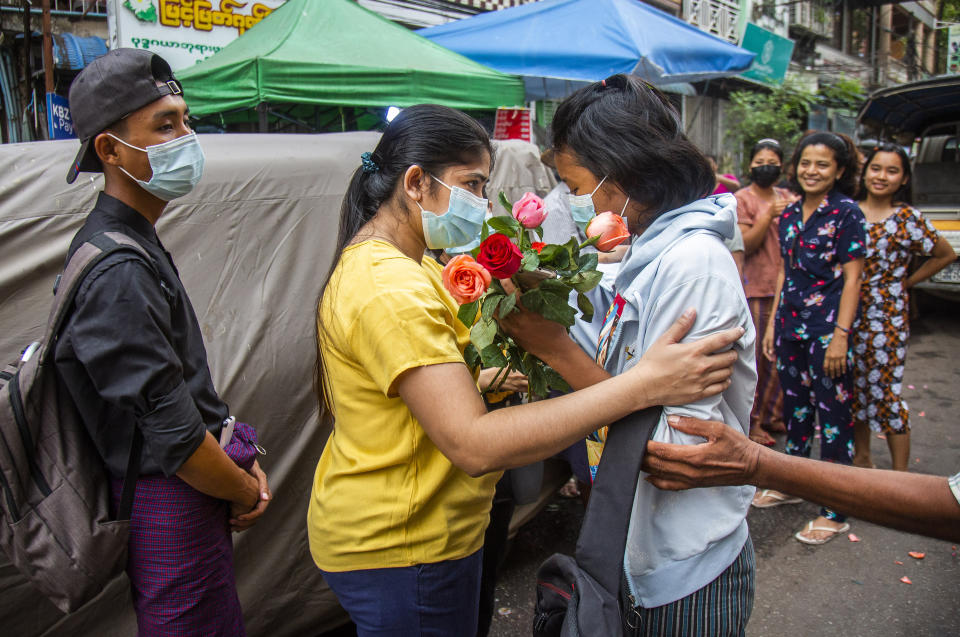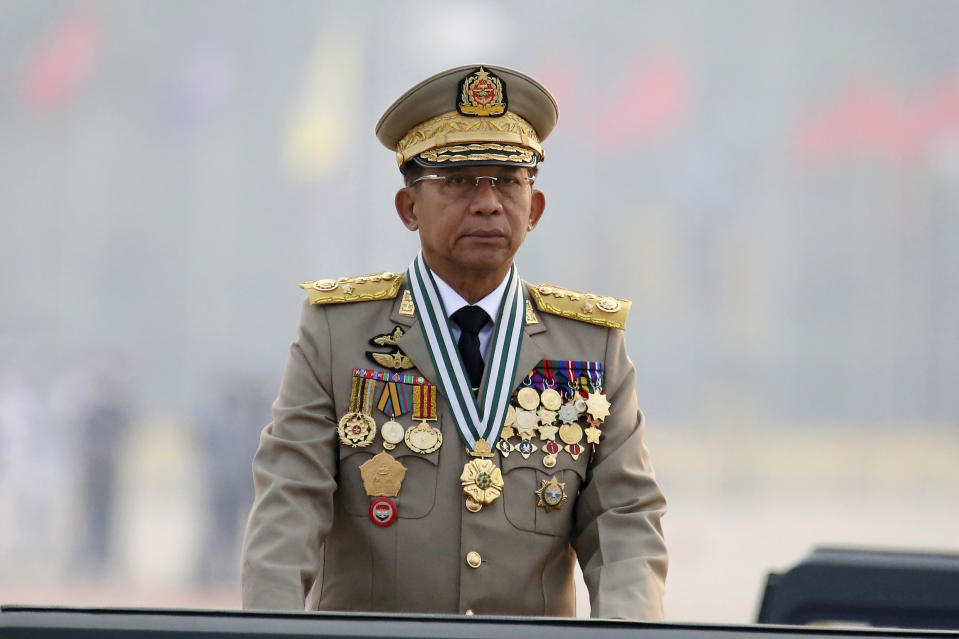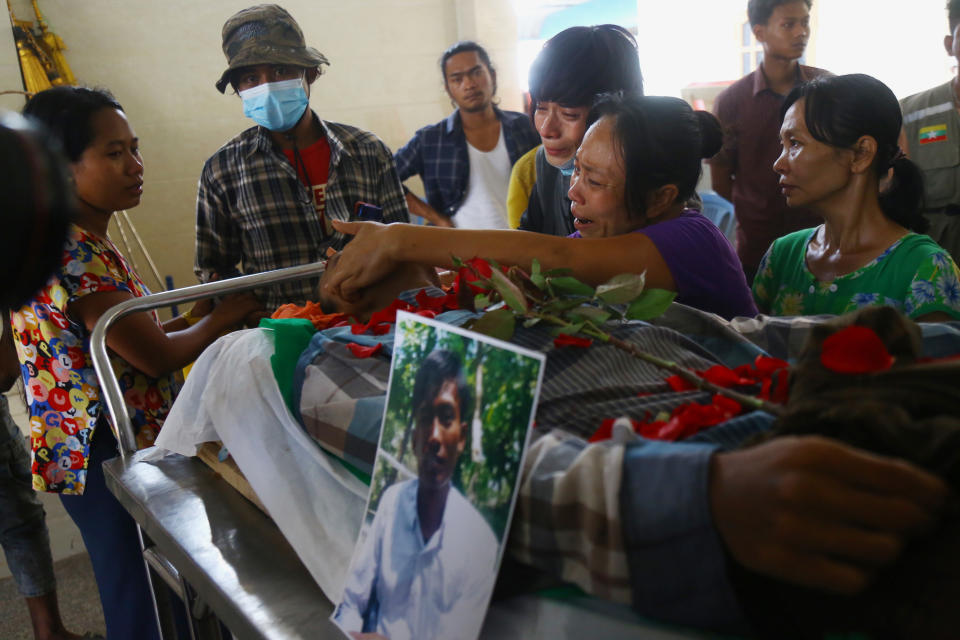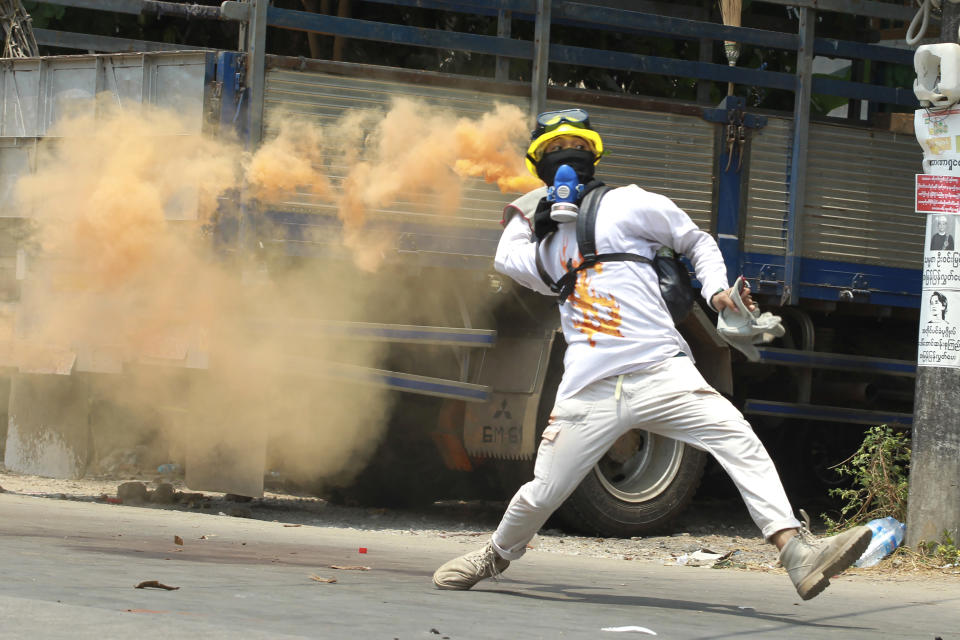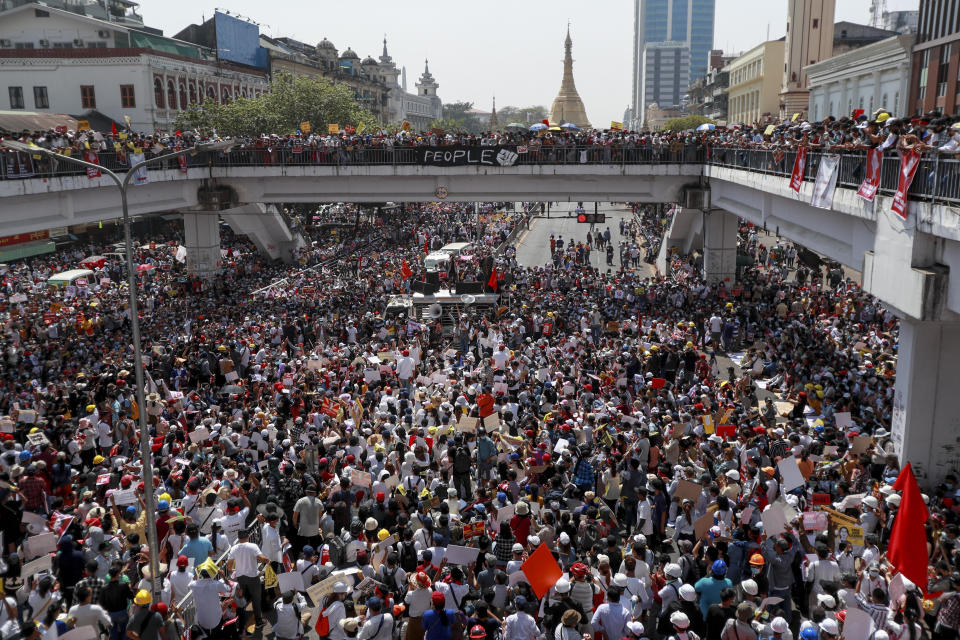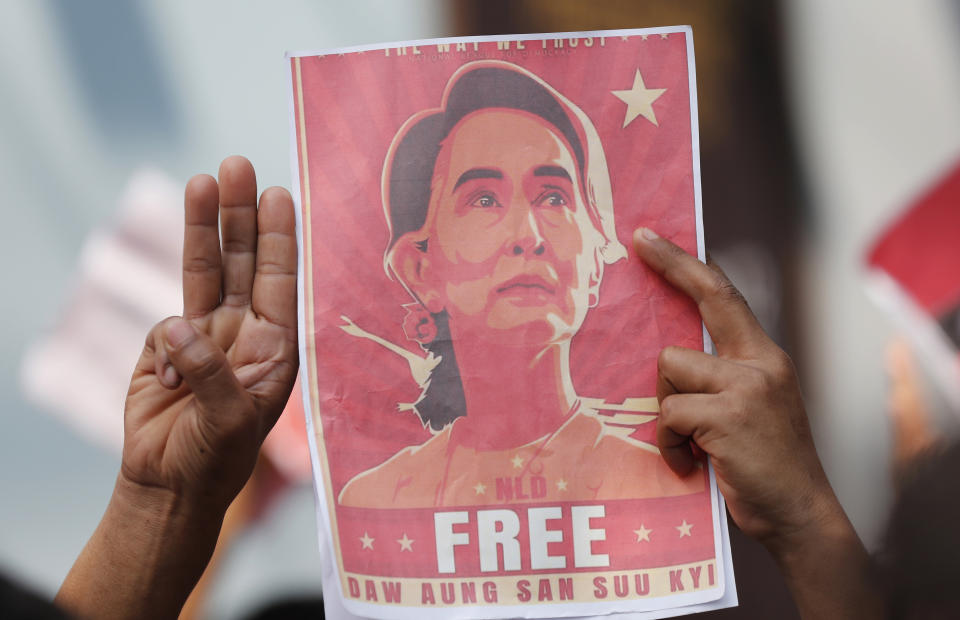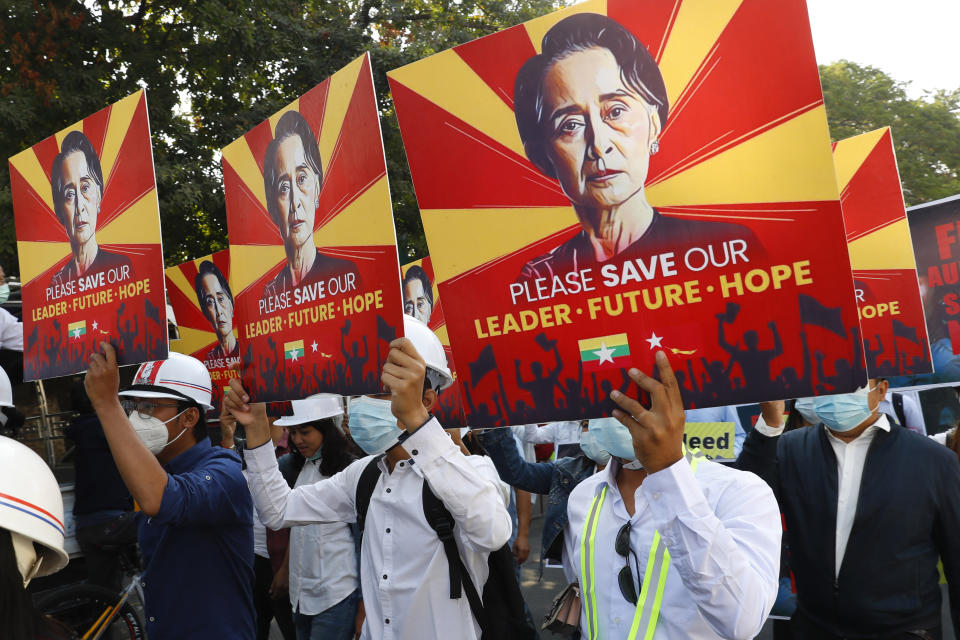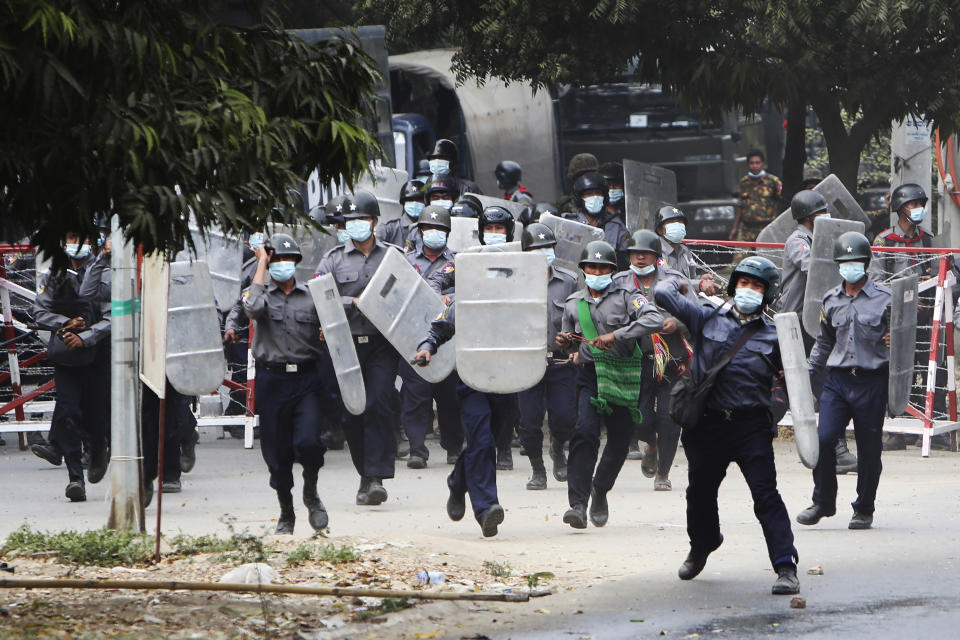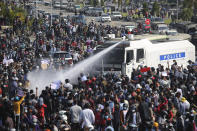AP PHOTOS: 100 days of force and resistance in Myanmar
The military takeover of Myanmar early in the morning of Feb. 1 reversed the country's slow climb toward democracy after five decades of army rule.
But Myanmar's citizens were not shy about demanding their democracy be restored.
They poured into the streets of cities and towns, carrying banners calling for the release of civilian leader Aung San Suu Kyi, whose party they reelected to office by a landslide last November.
The turnouts were enormous, and the country’s military rulers felt threatened. With a partial understanding of the situation, they tried to block social media platforms, which they knew could be used for organizing protests. But their more technologically adept opponents devised workarounds and activated word-of-mouth networks. The vast marches and demonstrations continued.
Gatherings were declared illegal, curfews imposed, the media muzzled, internet access limited even more. Still the protests went on.
The security forces turned more forceful, but demonstrators remained defiant. Terror and lethal force was unleashed on them, with the predictably tragic results. Hundreds of protesters and bystanders have been killed, including dozens of children.
In the 100 days since its takeover, the military has failed to secure its position and faces battles on more fronts, as armed ethnic minority groups seeking more autonomy join their struggle to that of the democracy activists.
The street protests are fewer and much smaller now. Enraged citizens have taken up active self-defense, countering violence with violence. In the cities, small bombings with homemade devices have become a daily occurrence, while hundreds, perhaps thousands, of activists have fled to join the ethnic guerrillas in the jungles along the borders, seeking safety as well as military training to continue the fight.

 Yahoo Finance
Yahoo Finance 